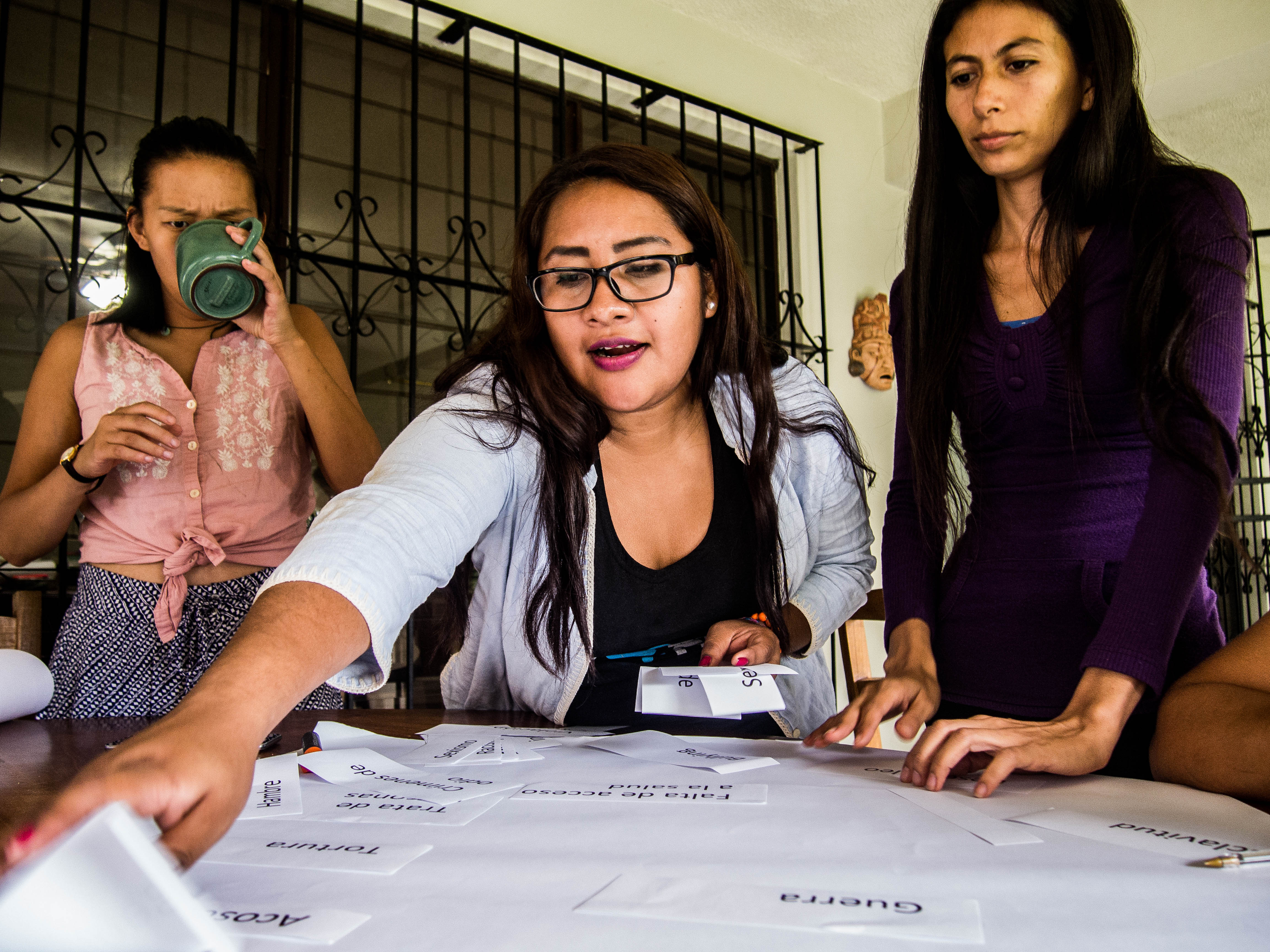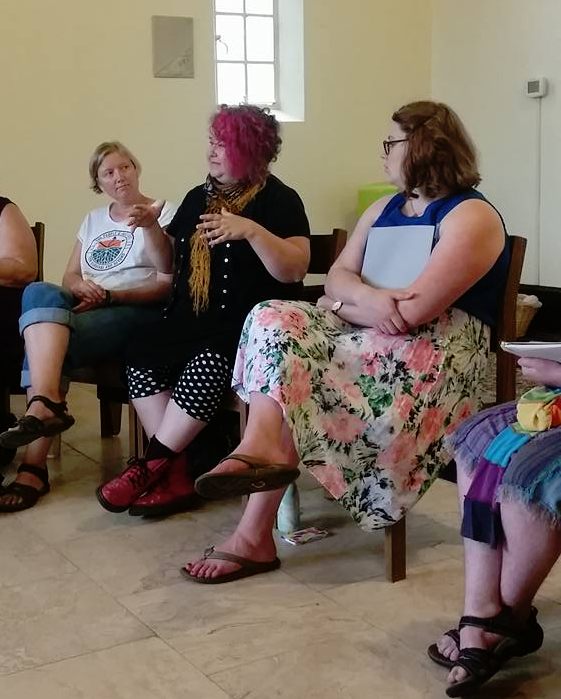As UUCSJ continues to evolve in the midst of still unfolding global health, geopolitical and climate change disasters, we commit to collaborate, co-create, and curate youth, young adult, and multigenerational learning opportunities using an experiential education pedagogy for social justice education.

Our Three C’s: Collaborate, Curate, and Co-Create
Collaborate
How we do our work matters as much as the work we do. The core values of our co-founding institutions, the UUA and the UUSC, inform the shaping of our programs and processes. The partnerships created within the UU universe and across the globe deserve to be tended to with respect and care. Being able to support and create containers of connection and collaboration that highlight commonality of purposes while holding space for multiplicity of worldviews is essential for global solidarity practice. UUCSJ is committed to collaborations that not only let us teach about global solidarity but are in fact practices of global solidarity.
Co-create
In a world of constant change, UUCSJ is teaching people how to “people” together again. We are shaping risk management and protocols of collective care that can be responsive to emergent learning environments, and offering this skill set to collaborators, UU communities, and engagement partners – for supporting youth and young adults who have lived through pandemic realities to name their experiences and integrate them into learning. These creations allow for reflection and integration of experiences with frontline partners, revealing how deeply connected our lives and actions are and tuning our souls to solidarity.
Curate
It serves the mission of UUCSJ to serve as a connection hub for spiritually grounded justice learning as part of our work. UUCSJ hopes to intentionally curate accessible learning opportunities beyond our own collaborations and co-creations for youth, young adults, and multigenerational groups. From UU camps to Beloved Conversations to Jubilee Three to Transforming Hearts Collective to Living Legacy Project, there are excellent spiritually grounded justice-centered programs being offered and often underutilized. We resist the dominate narrative of competition that tells us to put all our resources in the projects and process that have our name stamped on them. We know that collective liberation is for everyone and will require many ways of connecting and learning to open as many hearts and minds as possible.
The Importance of Reflection

We understand that the systems of privilege and oppression around us are more than abstractions – they directly affect how we are able to live in this society. Systems of power and privilege affect how we understand ourselves and the greater world, affect the ways we can provide for our families and ourselves, affect our emotions, our physical, mental, and spiritual sense of safety and belonging. Our learning is disconnected from the work of social justice until it is actively tied through reflection to adjusting and readjusting how we show up in relationship with the movements, values, and beings we care about. Reflection is how we align our actions with our values. Without reflection, learning becomes a practice in abstraction with the goal of right thoughts ungrounded in relationships of mutuality. This experiential education pedagogy for social justice education is the ground in which we are continuing our work!

